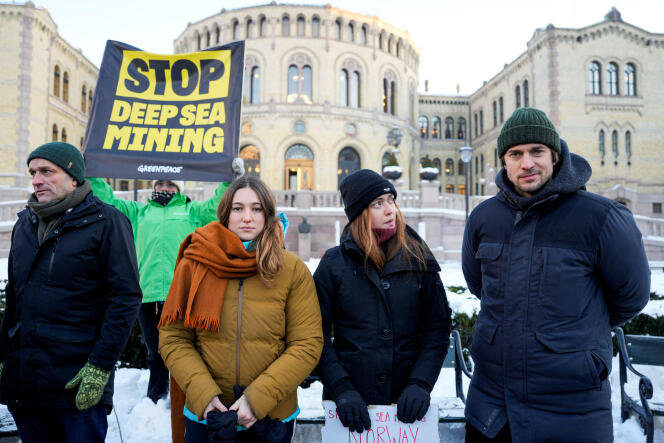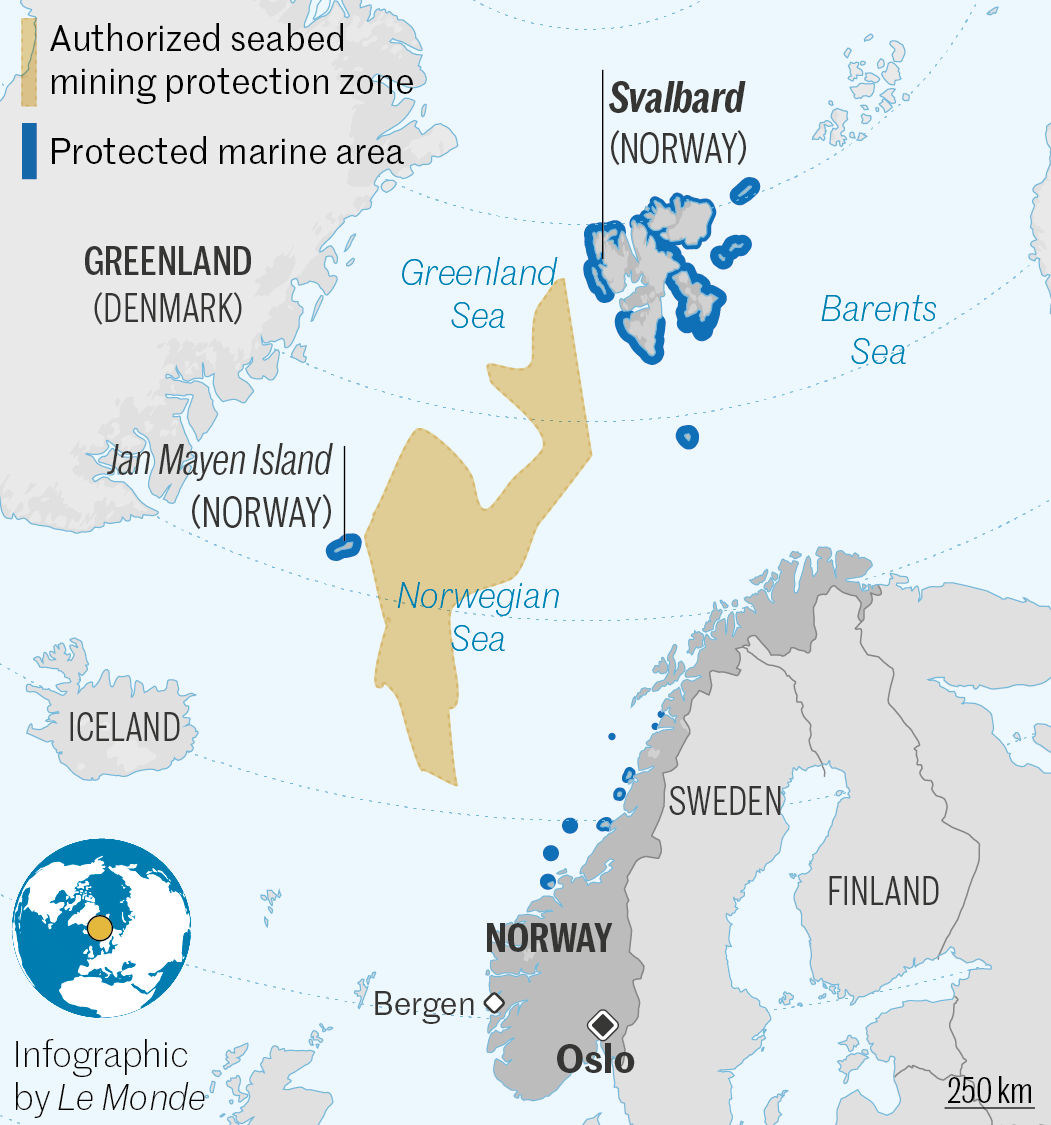
The mobilization may have been significant but it had no impact. By December 4, 2023, over half a million people had signed a petition, posted online by the NGO Avaaz, calling on the Norwegian government to abandon its plans to authorize seabed mining. A few weeks earlier, some 100 MEPs urged their Norwegian counterparts to "vote against the government's proposal and support the adoption of an international moratorium on deep-sea mining" on November 9.
Neither the countless letters published by scientists warning of the risks for ecosystems that are still very poorly understood, nor the demonstration organized by a number of different environmental associations in front of parliament in Oslo on Tuesday, January 9, ultimately changed anything. By mid-afternoon, 80 MPs against 20 had approved the government's proposal, which could eventually make Norway the first country in the world to commercially exploit the mineral resources nestled in its continental shelf.
The adoption of the text came as no surprise. On December 5, the center-left minority government reached an agreement with the two main opposition parties, the Conservative Party and the Progress Party, to authorize mineral exploration in an area of 281,000 square kilometers (equivalent to 70% of Norway's surface area), stretching from the Barents Sea to the Svalbard archipelago. The text stipulates, however, that Parliament will have to vote again to authorize mining.
A highly controversial decision
"Exploitation will only be authorized if studies carried out show that it can be done in durable and reasonable ways," assured Conservative MP Bard Ludvig Thorheim at the time, while Oil and Energy Minister Terje Aasland promised to "proceed cautiously, step by step."
Defending this highly controversial decision, the four major parties pointed to the need for minerals to drive the ecological transition and the importance of ensuring Europe's strategic autonomy. According to an estimate by the oil board in Oslo, the seabed off the Norwegian coast could contain up to 45 million tonnes of zinc, 38 million tonnes of copper, as well as huge quantities of other metals and rare-earth element.
The project, however, faces massive opposition. In Norway, more than 1,100 government agencies, research institutes, NGOs, individuals and companies gave their opinions in a public consultation conducted in 2022 – the overwhelming majority of which were negative. Internationally, 804 scientists from 44 countries signed a declaration stating that seabed mining risks "the loss of biodiversity and ecosystem functioning that would be irreversible on multi-generational timescales."
You have 50.04% of this article left to read. The rest is for subscribers only.
